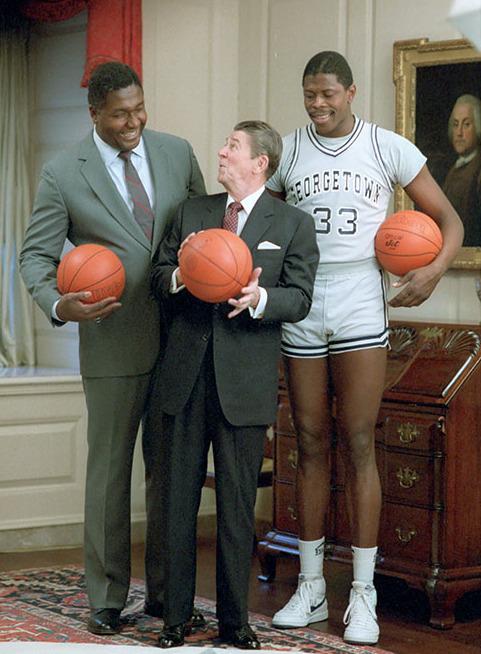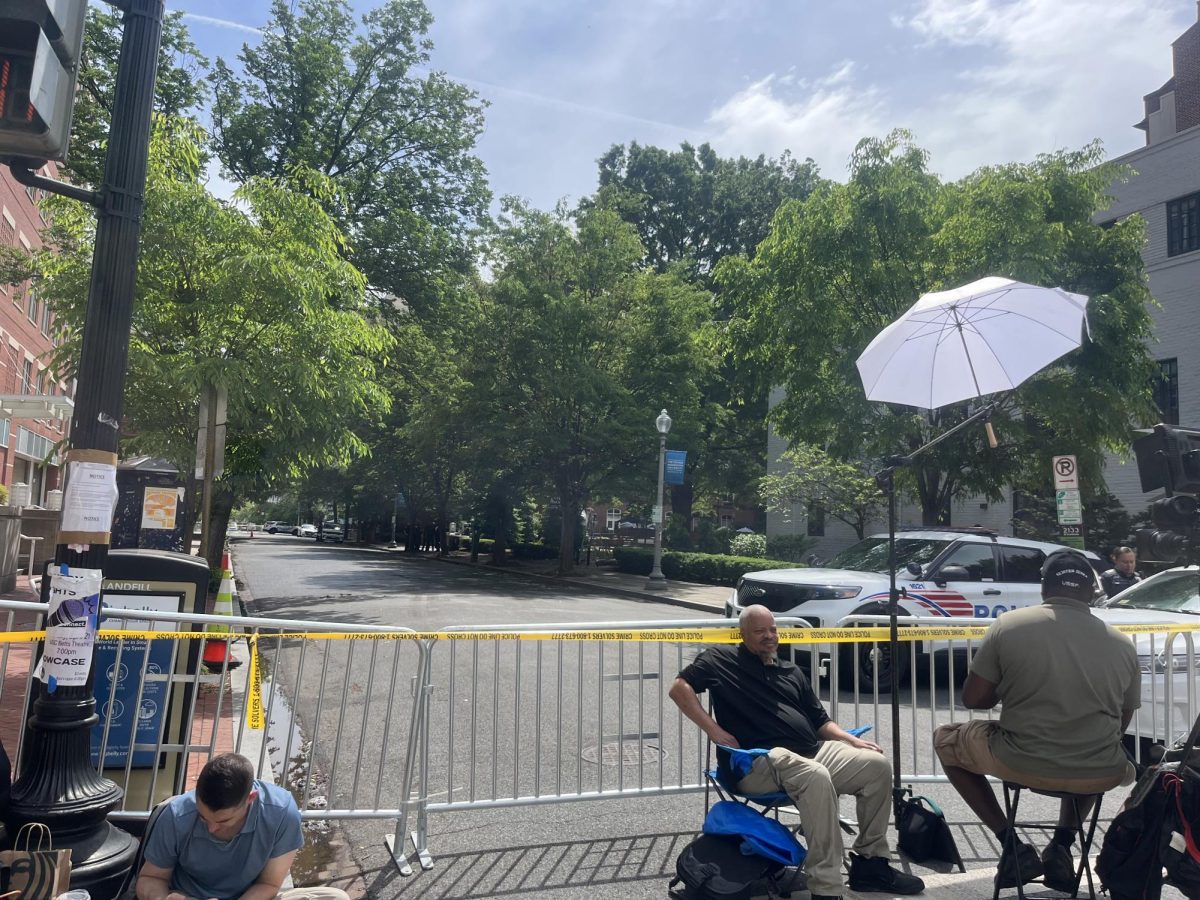Khari Brown, local nonprofit CEO, has received the “Legacy of a Dream” award from Georgetown University.
Brown, CEO of Capital Partners for Education (CPE), a nonprofit that provides mentorship for low-income students in Washington, D.C., received the award from President John J. DeGioia (CAS ’79, GRD ’95) on Jan. 17. Since 2003, the John R. Thompson Jr. “Legacy of a Dream” award has been granted to local leaders who have completed meaningful civil rights, children’s rights or humanitarian work in their community. The award, which is presented to recipients on Martin Luther King Jr. Day each year, is named in honor of John Thompson Jr., former Georgetown head basketball coach.
Brown said that it is a privilege to receive an award associated with prominent civil rights leaders.
“This award is the greatest honor I’ve ever received, and it’s also extremely meaningful for our organization,” Brown wrote to The Hoya. “To be associated with leaders like Martin Luther King, and John Thompson is beyond my wildest dreams, and I hope this special recognition helps us bring more attention to the need for promoting economic mobility for Black and Brown young people in our community.”

Mentorship has proven to be an essential component of Brown’s work, according to DeGioia.
“His leadership shows the power of mentorship as a tool to bring out the very best in our young people and enable them to thrive,” DeGioia said during a live virtual presentation of the award.
Under Brown’s leadership, CPE expanded from mentoring 50 students annually to working with nearly 500 students. Nearly 61% of students who work with CPE graduate from college — triple the national average among similar students — and 88% of its 2020 high school class enrolled in college within one year of graduating from high school.
Despite these successes, disparities in education continue to rise, often influenced by socioeconomic factors beyond students’ control, according to Brown.
“Educational outcomes are too often determined by zip code, race and family income,” Brown wrote to The Hoya. “Change is needed in many areas, including at a national policy level in addressing the systemic inequities in our country and the DC community that make educational success and economic mobility so hard to achieve for the young people we serve.”
CPE initially started as a scholarship program for low-income students looking to attend private schools. It soon turned into a mentorship and career-focused program that saw growing demand from D.C. public and charter schools. Brown’s priority then shifted to focus on first generation college students who remain affected by unequal opportunities in the District.
Brown identified a group of underserved students known as the “academic middle” — students whose grade point average fell between 2.3 and 3.1 and have the potential to go to college but lack the resources and support — to receive CPE mentoring.
Education and equal opportunities for all students are essential components of building a more equitable society, according to Moisés Alvarez (SFS ’23), a student who was involved with CPE throughout high school.
“Khari’s work is social justice, with a focus on income inequality and racial disparities in the education system,” Alvarez wrote to The Hoya. “I believe education is the great equalizer, and it makes an invaluable difference in the lives of young people who can dream of a better future. In our DC community today, we see so much unrealized potential in students who do not have the resources and access to take the next step at a college education, if that’s what they want to pursue.”
Khari’s work continued at the onset of the COVID-19 pandemic in March 2020, when CPE began conducting their programs virtually and increased its funding by more than 500%, providing monetary resources for students and their families to help them pay rent and buy essential items.
CPE and Brown continue to change students’ lives even after they graduate from the traditional mentorship programs, according to Alvarez.
“My education is a stepping stone for me to go on into the professional world and make an impact in my community,” Alvarez wrote. “CPE has been a pivotal player in all this. When I joined at 14 years old I was paired with a mentor, with whom I keep in touch today.”




















